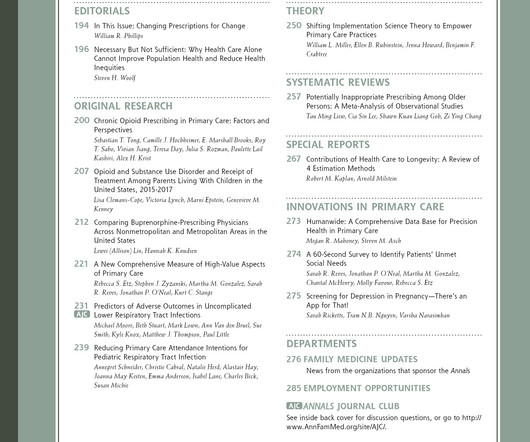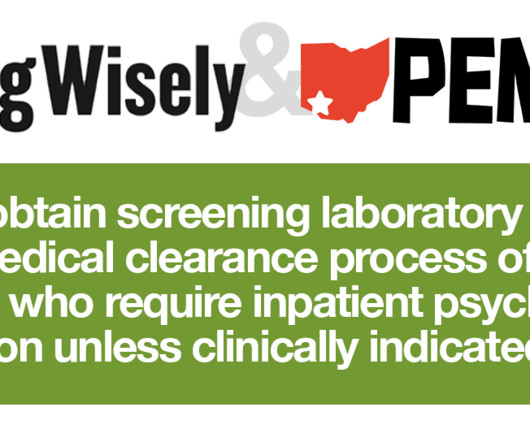Implementation and Uptake of the Virginia Mental Health Access Program [Child and adolescent health]
Annals of Family Medicine
NOVEMBER 20, 2024
Context: There has been a steady increase in pediatric emergency department (ED) visits for mental health. These visits are costly and preventable, representing a failure to address the mental health needs of children. Results: 20.2% of clinicians received any support by VMAP between 2016-2023. Results: 20.2%












Let's personalize your content